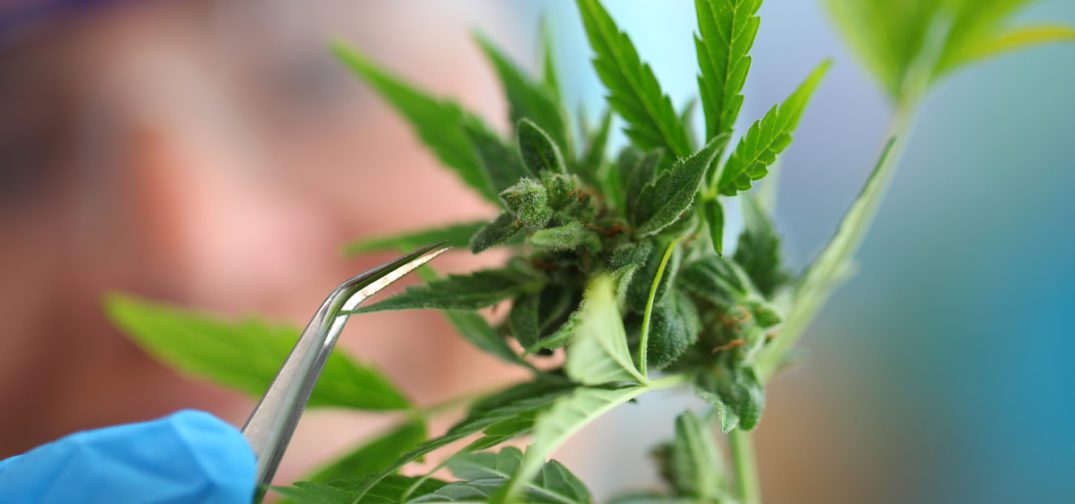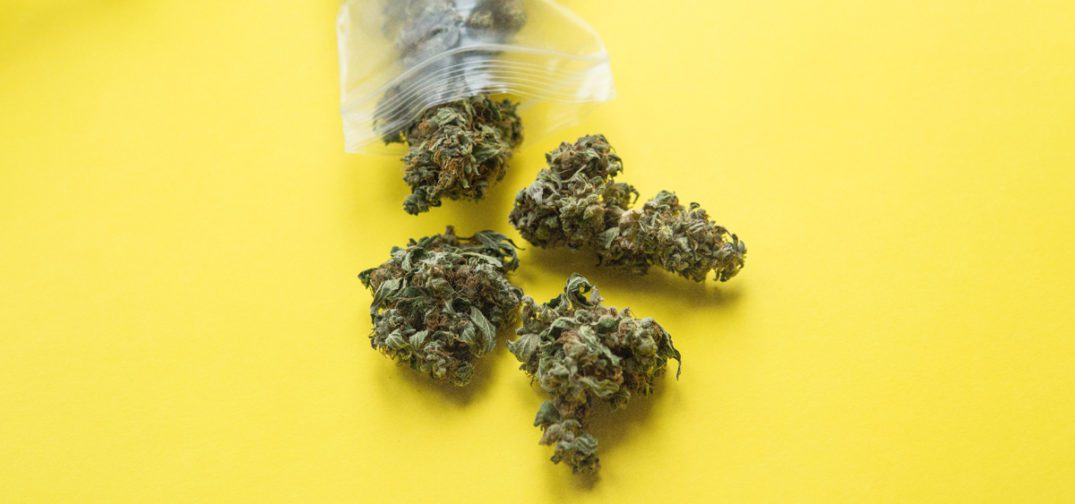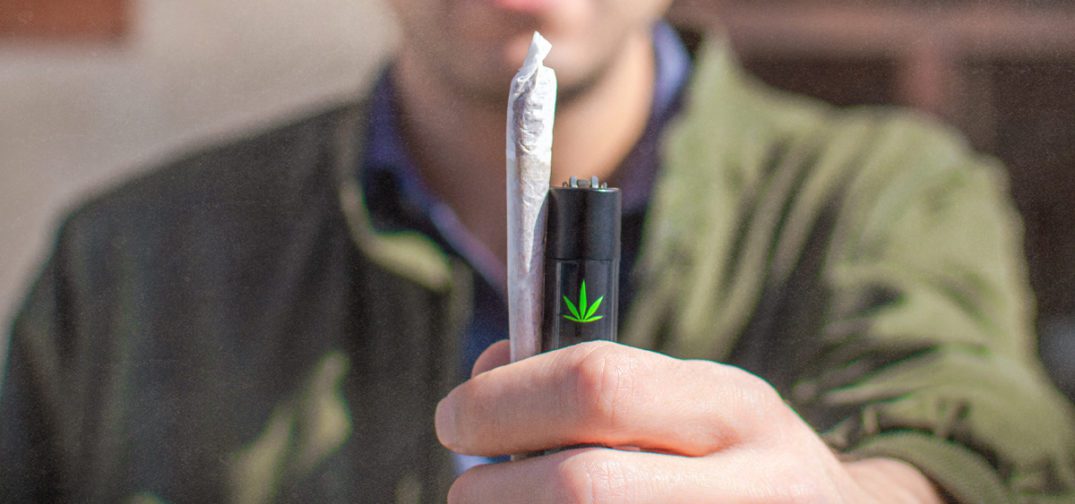When Oklahoma regulators launched the state’s medical cannabis industry with an open and generally welcoming licensing scheme, it created a market where anyone with fortitude and starting capital could launch a business and try their hand at the cannabis industry.
While The Nirvana Group originally started as the Lasi family tobacco shop, it has grown into a corporate enterprise encompassing cannabis retail, distribution, wholesale, and cultivation operations, all handled in-house. This Q&A covers Arshad Lasi’s journey as a young CEO building out the enterprise, establishing the various vertical operations, and tips for running a family-owned and -operated business. The interview also covers new product development, a discussion about Oklahoma’s formerly open cannabis licensing scheme, and more!
Scroll down for the full interview:
Ganjapreneur: Did you face many challenges converting your family’s Oklahoma smoke shop into a vertically integrated cannabis enterprise?
Arshad Lasi: In terms of opening multiple dispensary locations, and then applying for licenses to eventually open and operate cultivation, manufacturing and distribution centers, it all happened within a few years – certainly quicker than I anticipated. But my personal challenge was balancing going to school as an undergraduate at the University of Houston, all the while running and expanding this burgeoning business. At the beginning it was rough, especially with having to travel back and forth between Houston and Tulsa. A silver lining of the pandemic was being able to stay in Tulsa to run the business while also completing many of my college courses remotely online. That certainly made it easier to balance everything.
What are the pillars of The Nirvana Group? In what order did you establish the smoke shop, dispensary, and distribution center?
The pillars of The Nirvana Group are multi-faceted. They include a 30-acre cultivation facility; a 10,000 square foot extraction center; a 7,500 square foot commercial kitchen to produce beverages and edibles; Nirvana Distribution, a 10,000 square foot warehouse that is one the largest Smoke Shop, Glass, Paper, Vaporizer, and Packaging distributors in Oklahoma, servicing more than 500 dispensaries for their ancillary products; and Argent Cannabis Distribution, the only cannabis cash & carry concept in Oklahoma and the wholesale distribution company for Nirvana Group’s cannabis brands, which range from vapes to pre-rolls to edibles and beverages to concentrates and more. We have two locations of Argent, in Tulsa and Oklahoma City, and work with more than 30 brands and are home to nearly 1,000 SKUs. And mentioned here last, but certainly not least, is our expanding roster of both medical dispensaries and smoke shops throughout the state.
In terms of the order of when we established these operations, my father founded the company Nirvana and opened our first smoke shop in 2011. We then expanded our operations in 2018 to include Distribution and Wholesale, and rebranded our growing business as The Nirvana Group. In January 2019 we opened our first medical dispensary, followed shortly by three additional dispensaries and then Argent Cannabis. In October 2020 we expanded the Argent and Nirvana distribution operations, and in 2021 began our extraction and cultivation operations. By the middle of 2021, we were manufacturing edibles, beverages, vapes, etc., both as in-house brands and for white labeling.
We also opened a new smoke shop in Albuquerque, New Mexico in July 2022. In addition, we recently received our New Mexico cannabis business licenses and plan to expand our manufacturing and distribution operations into the state within the next three months. We are examining expansion opportunities into additional states as well.
Does Argent Cannabis Distribution accept all brands on the platform of only Nirvana Group cannabis brands?
Not all; we vet the brands to make sure they’re a good fit for us and ensure that we can provide them with successful results. We distribute our partner brands and others, including Toast, Venus Electra, Nuvata, Releaf Labs, and more.
What is the process of developing a new product at The Nirvana Group? How did the company build these SOPs?
There’s a tremendous amount of ideation and research & development involved. We’re consistently working on creating new products and improving on our current product lines. We innovate for ourselves as well as for the partner brands we work with, like Love Yer Brain [previously mentioned]. We built our current Standard Operating Procedures through trial and error, as well as from valuable advice from fellow market leaders.
Does the commercial kitchen do palatability, effect, or other types of tests before bringing a product to market?
Absolutely. We want to ensure our products will be enjoyed by the patients who consume them.
What grow methods and mediums do The Nirvana Group use in its cultivation space?
We use soil in our greenhouse, as well as some outdoor cultivation methods.
How have you noticed that open licensing affects the Oklahoma cannabis space?
The Oklahoma cannabis space is one of opportunity and access, which I view positively. It is relatively inexpensive to obtain a cannabis business license compared to that of most legal states. Of course, the risk of oversaturation is a negative effect of open licensing that we should be mindful of. Therefore, it is important to create regulations that will prevent the market from being flooded, which could also lead to quality control issues. However, there are plenty of benefits that come with expanding access to the industry.
Even with a license you still need a fair amount of capital to launch, but the overall lower cost of getting started also comes into play thanks to more affordable real estate as compared to other parts of the country, opening up the opportunity to build larger facilities for cultivation, storage, manufacturing and distribution, as well as storefronts for dispensaries. This creates opportunities for newcomers and legacy operators to get into the licensed industry, and may also benefit underserved communities who have been historically targeted by the unjust war on drugs. Assisting these communities is a cornerstone of the legalization process and Oklahoma’s regulations can result in inclusivity and widespread participation. However, now Oklahoma’s regulations are becoming more limited and restrictive, as unfortunately I don’t believe that equity and widespread opportunity were the original intentions of the state legislators who drafted the original regulations.
Has The Nirvana Group considered a future of adult-use legalization while building out the medical cannabis enterprise?
Absolutely – and one of the ways we’ve been planning for an imminent adult-use market is through product innovation including infused beverages, a key product bringing cannabis consumption to the mainstream, and through strategic partnerships. The future of cannabis is well thought out, consumer brands, and we’re taking steps to be involved in that space as much as possible. For example, we recently partnered with Love Yer Brain, the edibles brand founded by Flaming Lips frontman and Oklahoma native Wayne Coyne, to increase availability across the state, create new specialty products, and expand into new markets.
What challenges have you faced working with your parents on this venture?
Working alongside my parents to grow this business has been extremely positive and rewarding for the most part. They’re part of The Nirvana Group Board, and here to lend their guidance to business decisions. Even when we disagree, at the end of the day, we’re able to hash everything out at the dinner table, as well as compartmentalize what’s business and what’s personal, and remain transparent and honest with one another.
How has establishing a corporate structure in your family business been a positive experience? Do you have any advice for families working together?
I look to my parents as role models and mentors, so it has been an extremely positive experience learning the ins and outs of how to operate a retail business from them, and together learning the incredibly complex and constantly evolving cannabis industry. It has also been a fulfilling experience to have them put their trust in me to expand the business and to take the wheel as CEO of the company. Even though there have been difficult and challenging times and situations, The Nirvana Group has matured from a mom-and-pop business to a more structured, corporate model.
My advice would be to allocate specific times to talk about business, and then make sure you still dedicate family time for more personal conversations and general life updates. Thankfully, my parents and I have a great personal and working relationship.
As a young CEO, how have you prepared for the executive position? Could you share any lessons learned that helped you achieve new levels of success in the role?
The best way to prepare is really to jump into the deep end and start swimming. A traditional business education can help, but working in the licensed cannabis industry really requires on the ground experience and the ability to adapt and pivot, as well as a desire to continue to learn and innovate.
One of the most important lessons I’ve learned along the way is to build a strong team and to trust your team, understanding your colleagues’ strengths and interests, as well as your own strengths and weaknesses. No leader is able to excel at every single aspect of what it takes to run a company, but part of being a successful executive is choosing the right people to work with and letting them shine in their respective specialties.
Thank you, Arshad, for answering our questions and sharing your industry experiences! To learn more about Arshad Lasi and The Nirvana Group’s cannabis operations, visit Nirvana-Dispensary.com.























